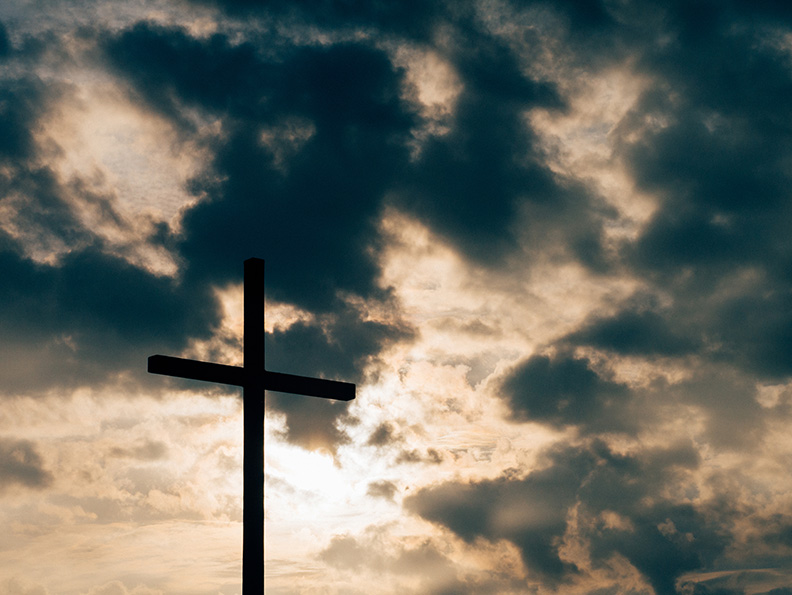The heartland isn’t the easiest place to get your existential points across. After one of the state’s worst tornadoes tore through the city of Moore, CNN’s Wolf Blitzer interviewed Rebecca Vitsmun in front of what was once her home. After insisting that the survivor’s family was “blessed,” the bearded anchor asked Vitsum if she thanked God for her safety. Though a bit hesitant, Vitsmun revealed the she was (and still is) an atheist.
It wasn’t the notion of secularism that threw Blitzer and most of America for a loop. After all, the national discussion, while recurring, isn’t particularly fresh. Rather, it was the virtually microscopic chance that Blitzer would stumble upon an atheist in the thick of Oklahoma, the proverbial buckle of the Bible Belt. With the entire nation as a frame of reference, the comment caught many off guard. With the installation (and reinstallation) of the Ten Commandments display at the state capital, the chance of any secular community here would appear bleak at best.
This, however, is far from the case. The Oklahoma Atheists (AOK), a nonprofit orchestrating secular meet-ups and lectures across the state, has provided an outlet to nonreligious Okies since 1999. Founded by Kim Shultz and currently presided over by Kate Fulgham, AOK is one of the most active, niche groups in the metro and beyond. Putting forth a consistent flow of meetings, rallies, and other events, the presumed whisper of secularism in Oklahoma is hardly so.
Still, being religiously out is a bitch, as Shelley Rees, an English professor and general member of AOK, can testify. This past April, Rees, along with former AOK leader Red McCall, participated in a discussion at the University of Science and Arts of Oklahoma entitled “Thinking Through God’s Not Dead: A Debate and Dialogue.” Speaking with two academically qualified pastors, Rees was hopeful that for once in her time in Oklahoma, she might hear an argument for Christianity that would stifle her.
“Finally, someone’s going to do it,” Rees said in reflection. “These guys are for real — one’s even getting a Ph.D. They know things, so they’re going to say things that I haven’t heard before.”
Unfortunately, the harrowing retort that Rees was anticipating never came, as the opposing pastors defaulted to the run-of-the-mill “cosmological” platforms, positing that this all couldn’t be placed here by chance. Ergo, to Rees’s dismay, this Earthly mess could only be guided by the hands of a male and Caucasian-favoring deity, one fully actualized a couple millennia ago. Furthermore, the conversation never really took off, devolving into a circular discourse without much traction.
Of course, not all of the scholar’s faith-fueled encounters occurred on such an obvious stage. During a parent-teacher conference several years ago, Rees’s son’s instructors felt obligated to reveal some unsettling news: During a lecture on literature, one of the professors alluded to Genesis in order to clarify a text. Rees’s son quickly responded, citing that he didn’t “read the Bible,” for he was an atheist.
“They brought it up as if we didn’t know,” Rees painfully mused, “like they just revealed he was a heroin addict.”
In Oklahoma, maybe an addiction to such a narcotic is more common, or at the very least, an ordeal that people are familiar with. Chris Garneau, a sociology professor and one of AOK’s education chairs, wrote his dissertation on secular individuals in the Midwest. Likewise, Garneau also contributed to Religion and Political Tolerance in America, a collection of essays edited by Paul A. Djupe. In his study, Garneau traced how atheists (around 3,000 strong) perceived stigma, how they dealt with it, and the mental distress it could ultimately inflict.
“Atheists do feel a lot of stigma, for the most part,” Garneau said. “It’s really common, feeling the prejudice and being treated differently. Most of that comes from the family; people raised in evangelical families had an especially hard time. Discrimination was a part of it, too. About a third felt they lost romantic or professional relations, or an otherwise direct action was taken against them.”
Garneau further explained that very few are open during the construction of their secular identity. Conversely, the few that are open to admitting their secularism early on are more passionate. Peculiar as it may sound, the latter option yields healthier results.
“Something really important I found was that secrecy positively correlates with psychological distress,” Garneau said. “Though being ‘loud and proud’ can sometimes cause a lot of distress, being out is very good for your prolonged mental health.”
Very few seculars exist without something filling the communal void they typically encounter. Garneau often found that those participating in an online community would find their way into a physical gathering as well, be it “three times a year or three times a week.”
Garneau insisted that social media, specifically Facebook and Meetup, proved to be an especially tremendous boon to seculars. AOK, for example, finds a lot of its staying power in outlets such as this. Furthermore, McCall and several other board members of the organization would organize some kind of social gathering, typically through Meetup, almost every day.






